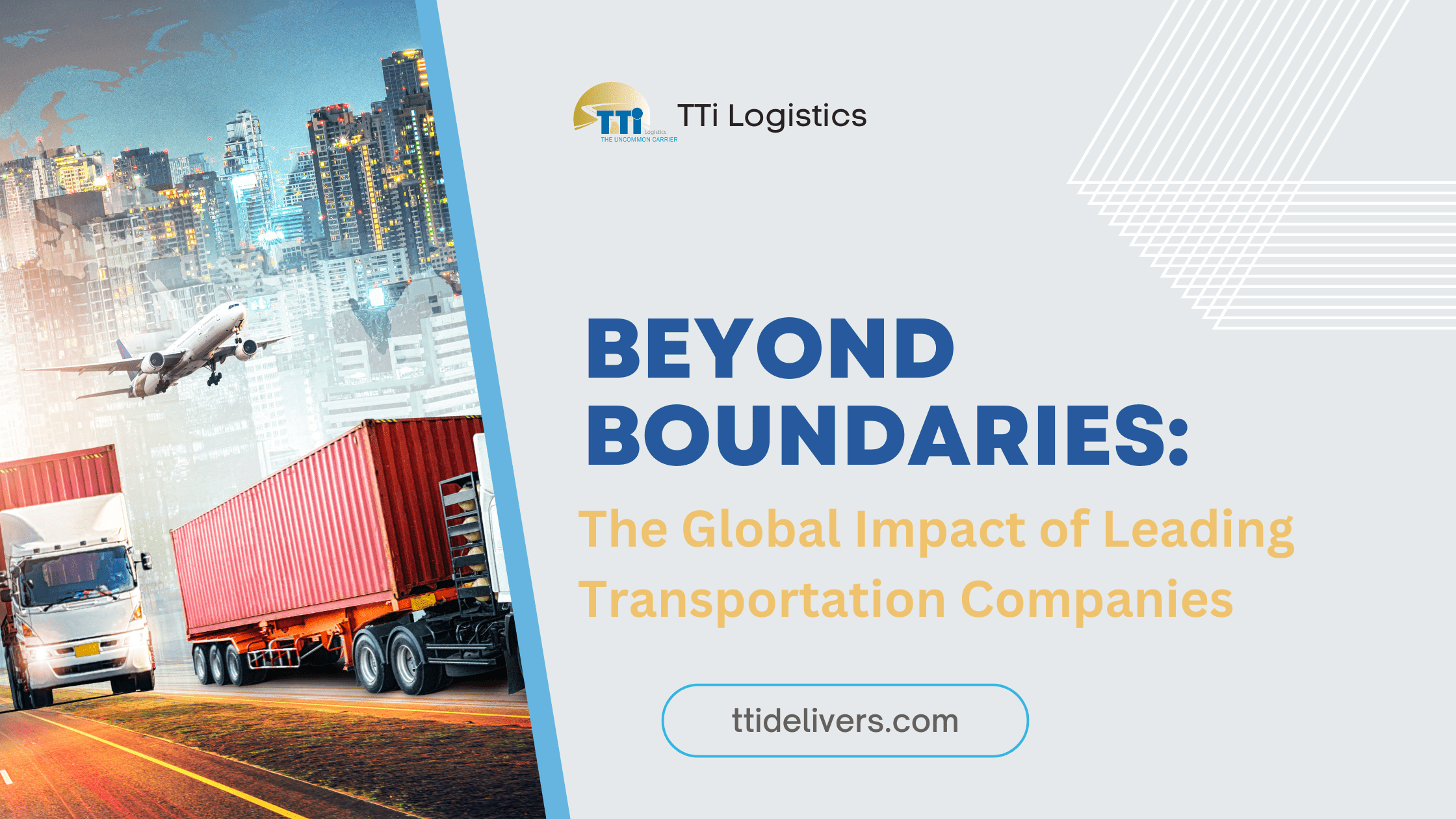Unlocking Global Influence: How Leading Transportation Companies Shape the World
The Role of Transportation Companies in Global Commerce
Transportation companies are the backbone of global commerce, providing essential services that enable the movement of goods and people across borders and continents. Whether by land, sea, or air, these companies facilitate trade and commerce, connect markets, and drive economic growth around the world.
Key Functions of Transportation Companies:
- Cargo Transportation: Transportation companies move goods of all kinds, from raw materials to finished products, across the globe. Whether by ship, truck, or plane, these companies ensure that goods are delivered safely, efficiently, and on time to their destinations. Cargo transportation services encompass a wide range of industries, including shipping, trucking, railroads, and air freight.
- Passenger Transportation: In addition to cargo, transportation companies also play a crucial role in moving people from one place to another. From commuter trains to international flights, these companies provide a variety of passenger transportation services that connect cities, regions, and countries. Passenger transportation services include airlines, railways, public transit systems, and ride-sharing platforms.
- Logistics and Supply Chain Management: Transportation companies also offer logistics and supply chain management services to help businesses optimize their operations and streamline their supply chains. These services include warehousing, distribution, inventory management, and freight forwarding, among others. By leveraging advanced technologies and strategic partnerships, transportation companies help businesses navigate the complexities of global trade and ensure the seamless flow of goods from production to consumption.
The Global Reach of Leading Transportation Companies
Leading transportation companies operate on a global scale, with networks that span continents and oceans. These companies employ sophisticated logistics systems, cutting-edge technologies, and strategic partnerships to deliver goods and people to virtually every corner of the globe. Let’s explore the global impact of some of the world’s leading transportation companies across different modes of transportation:
- Shipping Companies: Shipping companies are the backbone of global trade, transporting goods across oceans and waterways to ports and terminals around the world. From container shipping giants to bulk carriers and tankers, these companies facilitate the movement of raw materials, manufactured goods, and consumer products on a massive scale. Leading shipping companies such as Maersk, MSC, and COSCO Shipping Lines operate vast fleets of vessels that crisscross the world’s oceans, connecting producers and consumers across continents.
- Airlines: Airlines play a critical role in connecting distant destinations and facilitating international travel and trade. From passenger flights to air cargo services, airlines provide essential transportation services that link cities, countries, and regions. Leading airlines such as Delta Air Lines, American Airlines, and Emirates operate extensive networks of routes that span the globe, transporting passengers and cargo to destinations near and far.
- Railways: Railway companies are vital arteries of commerce, moving goods and passengers across vast landmasses with speed and efficiency. From high-speed passenger trains to freight railways, these companies provide essential transportation services that connect markets and facilitate economic growth. Leading railway companies such as Union Pacific, BNSF Railway, and Deutsche Bahn operate extensive networks of tracks that crisscross continents, transporting goods from factories to warehouses and ports.
- Trucking Companies: Trucking companies are the backbone of domestic transportation networks, moving goods from ports and distribution centers to their final destinations. From local deliveries to long-haul trucking, these companies provide essential transportation services that connect producers and consumers within countries and regions. Leading trucking companies such as UPS, FedEx, and DHL operate fleets of trucks that traverse highways and roads, delivering goods to businesses and households across the globe.
Innovations Driving Global Transportation
Leading transportation companies are at the forefront of innovation, pioneering new technologies and strategies to improve efficiency, reduce costs, and minimize environmental impact. From electric vehicles to autonomous drones, these companies are embracing cutting-edge solutions to meet the evolving needs of global commerce and society.
- Electric Vehicles: Transportation companies are increasingly adopting electric vehicles (EVs) to reduce emissions and lower operating costs. Electric trucks, vans, and buses are becoming increasingly common in urban delivery fleets, while electric passenger cars are gaining popularity among commuters and travelers. Leading transportation companies such as Tesla, Rivian, and BYD are leading the charge in electric vehicle innovation, developing advanced battery technologies and charging infrastructure to support widespread adoption.
- Autonomous Vehicles: Autonomous vehicles (AVs) have the potential to revolutionize transportation by eliminating the need for human drivers and reducing the risk of accidents. Transportation companies are investing in autonomous trucking, delivery drones, and passenger shuttles to improve safety, efficiency, and convenience. Companies like Waymo, Uber, and Amazon are developing AV technologies and testing pilot programs in cities around the world.
- Blockchain Technology: Blockchain technology is revolutionizing supply chain management by providing transparency, security, and traceability to global trade networks. Transportation companies are exploring blockchain solutions to track shipments, verify transactions, and streamline customs clearance processes. Leading companies such as IBM, Maersk, and FedEx are piloting blockchain initiatives to improve the efficiency and reliability of global transportation networks.
- Green Logistics: Transportation companies are increasingly adopting sustainable practices to reduce their environmental footprint and meet regulatory requirements. From alternative fuels to eco-friendly packaging, these companies are implementing green logistics initiatives to minimize emissions, conserve resources, and protect the planet. Leading companies such as UPS, FedEx, and Maersk are investing in renewable energy, electric vehicles, and carbon offset programs to achieve their sustainability goals.
The Role of Transportation Companies in Global Progress
Leading transportation companies play a vital role in shaping the global economy, facilitating trade, commerce, and cultural exchange across borders and continents. From shipping goods across oceans to flying passengers across continents, these companies connect producers and consumers, businesses and markets, in a seamless web of transportation networks. As technology continues to evolve and consumer preferences change, transportation companies will need to adapt and innovate to meet the challenges and opportunities of an increasingly interconnected world.
In conclusion, the global impact of leading transportation companies extends far beyond mere logistics and infrastructure. These companies are the driving force behind international trade and commerce, connecting economies and cultures, and driving progress and prosperity around the world. As they continue to push the boundaries of innovation and sustainability, transportation companies will play an increasingly important role in shaping the future of global transportation and commerce.







